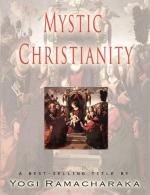He then considers the case of Jacob and Esau, which a certain set of thinkers had used to illustrate the unjust and cruel discrimination of the Creator toward His creatures. Origen contended that in this case it would be most unjust for God to love Jacob and hate Esau before the children were born, and that the only true interpretation of the matter was the theory that Jacob was being rewarded for the good deeds of past lives, while Esau was being punished for his misdeeds in past incarnations.
And not only Origen takes this stand, but Jerome also, for the latter says: “If we examine the case of Esau we may find he was condemned because of his ancient sins in a worse course of life.” (Jerome’s letter to Avitus.) Origen says:
“It is found not to be unrighteous that even in womb Jacob supplanted his brother, if we feel that he was worthily beloved by God, according to the deserts of his previous life, so as to deserve to be preferred before his brother.”
Origen adds, “This must be carefully applied to the case of all other creatures, because, as we formerly remarked, the righteousness of the Creator ought to appear in everything.” And again, “The inequality of circumstances preserves the justice of a retribution according to merit.”
Annie Besant (to whom we are indebted for a number of these quotations), says, concerning this position of Origen:
“Thus we find this doctrine made the defense of the justice of God. If a soul can be made good, then to make a soul evil is to a God of justice and love impossible. It cannot be done. There is no justification for it, and the moment you recognize that men are born criminal, you are either forced into the blasphemous position that a perfect and loving God creates a ruined soul and then punishes it for being what He has made it, or else that He is dealing with growing, developing creatures whom He is training for ultimate blessedness, and if in any life a man is born wicked and evil, it is because he has done amiss and must reap in sorrow the results of evil in order that he may learn wisdom and turn to good.”
Origen also considers the story of Pharaoh, of whom the Biblical writers say that “his heart was hardened by God.” Origen declares that the hardening of the heart was caused by God so that Pharaoh would more readily learn the effect of evil, so that in his future incarnations he might profit by his bitter experience. He says:
“Sometimes it does not lead to good results for a man to be cured too quickly, especially if the disease, being shut up in the inner parts of the body, rage with greater fierceness. The growth of the soul must be understood as being brought about not suddenly, but slowly and gradually, seeing that the process of amendment and correction will take place imperceptibly in the individual instances, during the lapse of countless and unmeasured ages, some outstripping others, and




